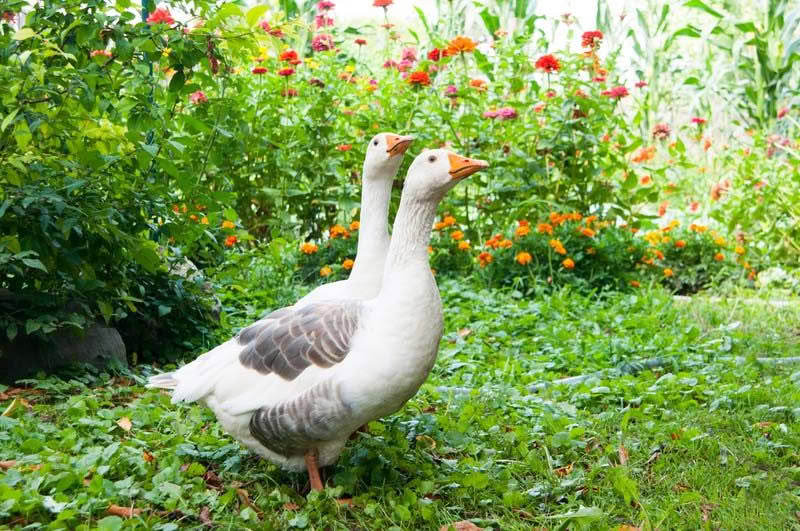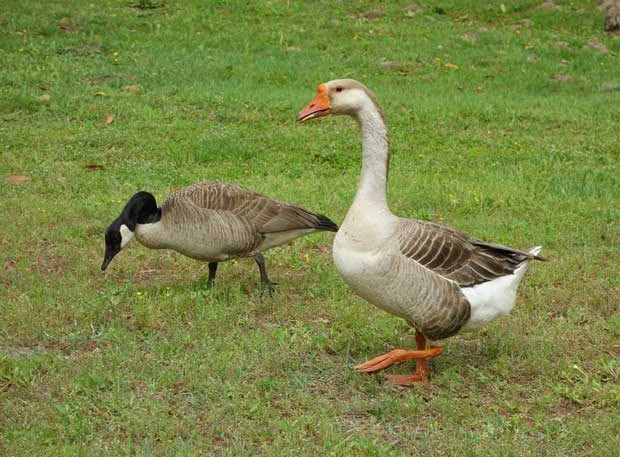A beginner’s guide to geese

When you’re considering security options for your farm, you’re probably considering the obvious: alarm system, gate alarm, dog, automatic lights, security cameras. But have you considered the humble goose?
Words: Nadene Hall
Geese have been guarding people and their properties for thousands of years. Roman soldiers are reported to have used them to protect them from surprise attack from the enemy. ‘Honk squads’ have been used in the UK to patrol car yards and council property, as the deafening shrill and snappy attack of a goose makes a very effective alternative to other security measures and is much cheaper. Don’t under-estimate the chomp of a serrated beak – it hurts.
Generally, you don’t want to have them if you’re in a built-up area. The shriek of an alarmed goose is pretty loud and carries a long way, and geese aren’t very smart so they tend to make a noise whether you are friend or foe.
Breed makes a difference. Some birds like the Toulouse or Embden goose are naturally more loud and cackly, but any breed is pretty vocal if they’re fussed about something.
Geese cost barely anything to own. They don’t need shelter, they are very resistant to disease, and they will mow down grass and keep it looking like a carpet if you get your goose-to-grass ratio right.
However, if the grass gets away on them, you’ll need to bring out the mower as they need a short, fresh grass supply (long, old and rank grass isn’t nutritious enough). It’s also good to supply a small daily grain ration like kibbled maize.

Geese love water, although they can live without it. A wide bowl that allows them to dip their head and drink is enough, but a lot of geese owners have small, portable children’s paddling pools available as they are easy to wash out (daily) and give the birds great enjoyment. The used water makes a great fertiliser as geese do excrete a lot of manure into it.
In my orchard, the plastic paddling pools are moved each day to a different tree, the used water is tipped out to wash over the roots, and the pool is rinsed and refilled.
Mature geese are independent too. They are less likely to fall to a predator and they can be very aggressive if it’s called for.
Younger birds (from 12 weeks onwards) make good eating. Adult females lay huge eggs that bakers love for their rich taste. Each egg is around the size of two chicken eggs, but if you’re cooking it’s best to do it by weight. Their down is perfect for stuffing into bedding.
In earlier centuries, geese were mostly used to feed on weeds and rotting fruit, to keep orchards and crops clear of pests. The modern use of herbicides saw the numbers of geese drop but with the rising popularity of organic farming, geese are once again being used to clean up around crops.
Macadamia nut orchardists Sue and Phillip Bearsley use Chinese ‘weeder’ geese on their South Auckland block to keep the grass short, and Koanga Gardens use the same breed in their food forest, helping with weed control and also providing a good meat source and eggs.
 This article first appeared in NZ Lifestyle Block Magazine.
This article first appeared in NZ Lifestyle Block Magazine.
